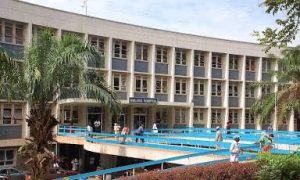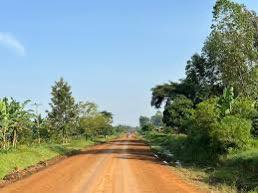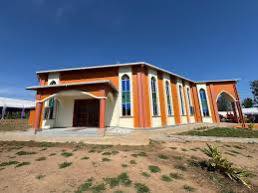By Denis Jjuuko
Uganda slapped a 42-day nationwide lockdown two weeks ago effectively putting the country back to the March 2020 days. Lockdowns are particularly effective when measures to curb the spread of a disease are put in place. The most surely shot though to curbing COVID-19 is by having a significant percentage of the most vulnerable to the disease immunized.
Uganda has yet to immunize a million people. By the time of writing, only 821,659 people had been immunized from the first batch of nearly a million dozes that were imported early this year. Another 175,000 dozes had been imported by the time of writing. More doses were expected in early July from COVAX, the COVID vaccine sharing facility for poorer countries and others from China. The Americans are donating 500 million vaccines to poor countries. If we lobby well, delay the Congo road adventure for a year or two until we have nipped COVID-19 in the bud, we would have enough resources and vaccines to ensure all the people who need to be vaccinated have received and completed their dozes.
If all these vaccines come in, we may have a significant number of people especially those who are most vulnerable immunized. The problem though is that the country is under a lockdown. Although the president can say only one word and the lockdown is lifted, opening up the country can also reverse the gains made during the period if not properly planned.
Our health system is already stretched to its limit given the number of people that need treatment not only from COVID-19 but also from other diseases. Health workers who are already working in health facilities should be left to providing healthcare to the sick.
So as we wait for the vaccines, we could use this time to train a good number of unemployed youth to be able to do immunizations so that when the vaccines arrive in the numbers we need, we have a critical mass of healthcare providers to administer the jabs without interrupting already stretched health centres. Student nurses, village health teams, and basically anyone with an O-level certificate can be easily trained. There are also the teams that have been distributing mosquito nets countrywide. We are not short of unemployed educated people who are easily trainable.
Then because the vaccines are most likely going to arrive when the country is under a lockdown, the government can use the structures that it used in January this year to conduct presidential and parliamentary elections.
Polling stations were easily organized within walkable distance of almost every citizen’s residence. Ballot papers and all the other materials were delivered almost on time in all the places they were needed. Nobody needed transport to go to vote simply because polling stations were stationed so near to people’s homes.
There were 34,684 polling stations serving the whole country. This number pales in comparison with the 6,937 health facilities in Uganda. My father traveled 15km to get his first shot of the COVID-19 vaccine. That is how far a health centre is from where he lives. I know that for some other people, the distance to a health centre is so long and expensive that they simply give up.
Yet when it comes to voting, my father simply walks to the polling station. So are other people countrywide. If we can have polling stations within walking distances of people’s residences, we can have the COVID-19 vaccine there too. The Uganda Electoral Commission (UEC) has a network of offices everywhere and over the years they have built the capacity of delivering materials in the remotest of areas on time. Now that they are ‘idle’ for the next few years having concluded the election cycle for this political term, they can be deployed to use the same logistical proficiency to deliver the vaccines. I know that the National Medical Stores (NMS) is mandated for this role and they have done well over the years to deliver vaccines and medical supplies to facilities but they don’t boast of UEC’s numbers. The commission should come in and play a supporting role.
The other organization that could help in this logistical exercise is the Uganda National Examination Board (UNEB). Every year, they deliver exams to thousands of examination centres across the country. Although they don’t have the reach of the electoral commission, they can also activate their logistical systems to help the country during this time of need.
The writer is a communication and visibility consultant. djjuuko@gmail.com








